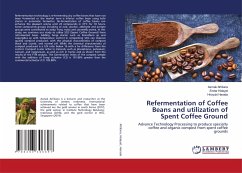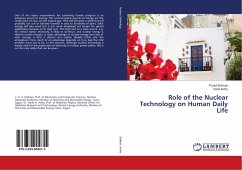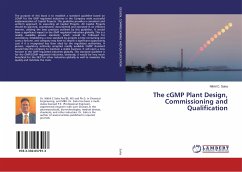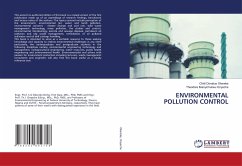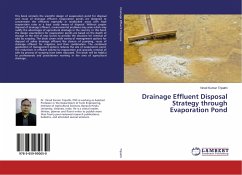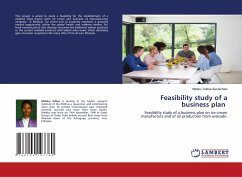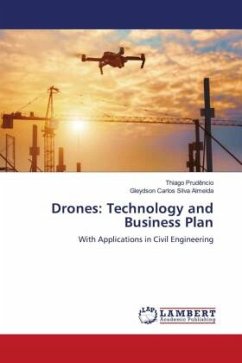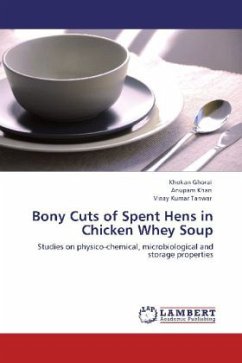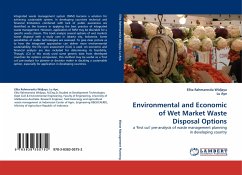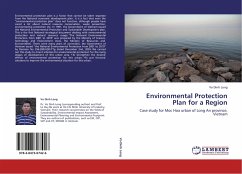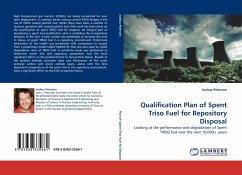
Qualification Plan of Spent Triso Fuel for Repository Disposal
Looking at the performance and degradation of Spent TRISO fuel over the next 10,000+ years
Versandkostenfrei!
Versandfertig in 6-10 Tagen
32,99 €
inkl. MwSt.

PAYBACK Punkte
16 °P sammeln!
High temperature gas reactors (HTGRs) are being considered for near term deployment. A common factor among current HTGR designs is the use of TRISO coated particle fuel. While there have been a number of reactors operated with coated particle fuel, little work has been done on the qualification of spent TRISO fuel for disposal. An integral part of developing a spent fuel qualification plan is modeling the in-repository behavior of the fuel. A basic model was developed to simulate the time to failure of spent TRISO fuel in a repository environment. Preliminary verification of the model was perf...
High temperature gas reactors (HTGRs) are being considered for near term deployment. A common factor among current HTGR designs is the use of TRISO coated particle fuel. While there have been a number of reactors operated with coated particle fuel, little work has been done on the qualification of spent TRISO fuel for disposal. An integral part of developing a spent fuel qualification plan is modeling the in-repository behavior of the fuel. A basic model was developed to simulate the time to failure of spent TRISO fuel in a repository environment. Preliminary verification of the model was performed with comparison to output from a proprietary model called GARGOYLE that was also used to model degradation rates of TRISO fuel. A sensitivity study was performed to determine which fuel and repository parameters had the most significant effect on the predicted time to fuel particle failure. Results of the analysis indicate corrosion rates and thicknesses of the outer pyrolytic carbon and silicon carbide layers, along with the time dependent temperature of the spent fuel in the repository environment, have a significant effect on the time to particle failure.



